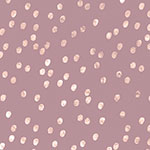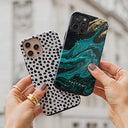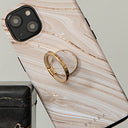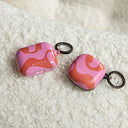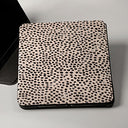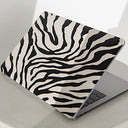Are Glass Screen Protectors Worth it?
24 Aug 2021
With so many smartphone screen protector options, it is often questioned whether the ever-popular glass screen protectors are worth purchasing.
Smartphones have become an essential gadget for communication, Internet access, and business. This, paired with the costliness of a new smartphone, means it is important for smartphone users to protect their trusty gadgets.
A smartphone screen is vulnerable to cracks, shatters, and scratches, even if the brand claims otherwise. Most people invest in a screen protector, which is a thin sheet of material made to stick on the screen, to provide extra protection.
In addition to a screen protector, do you need a phone case? While a screen protector might be an example of how to protect your phone without a case, the answer is yes, if you want full protection. Read up on phone cases vs. skins for the best option.

Among the many options, glass screen protectors are generally the most popular. But it is worth looking into just how effective they are, and how they weigh up against other materials.
Is it Worth Getting a Tempered Glass Screen Protector?
Smartphone manufacturers boast a stronger, more resistant screen with every product update. While smartphone screen protectors are not considered as essential as they might have been five years ago, they are still worth the purchase.
Just about every smartphone model will have a variety of custom glass screen protector options to choose from, so you are spoilt for choice.
The first advantage of a glass screen protector is extra protection against scratches, which can be caused by simply carrying your smartphone in your pocket or a handbag beside metal items, or sand.
A scratch may be small and barely noticeable at first, but over time the screen will appear worn out.
Next, a glass screen protector lessens the risk of a cracked or shattered screen. Dropping your smartphone is often unavoidable, but a protector will absorb some of the impact if it does happen.
The protector might crack, but this is preferable, and cheaper to replace than the actual screen.
Most glass screen protectors also reduce the appearance of fingerprints on the screen, with a special layer/coat on the sheet to make any prints invisible.
The screen protector will likely need to be replaced at some point during your smartphone’s lifetime, but thankfully this won’t cost you a fortune. It is also worth it, as repairing or replacing a smartphone would be exponentially more expensive.
Can Glass Screen Protectors Damage Your Phone?

Glass screen protectors cannot do any real damage to your smartphone by simply applying it to your screen.
The protector itself can be cracked, scratched, or damaged over time, and will likely need to be replaced. Do not link screen protector replacements with when to replace a phone case, as the latter will happen less frequently.
It is important to note that in some instances, a smartphone may be damaged severely enough for the screen to get cracked underneath the protector. It does not provide 100% protection - it reduces the risk of screen damage.
Which is Better: Plastic or Glass Screen Protector?
The two most commonly available options for smartphone screen protection are plastic and glass screen protectors.
A plastic screen protector is generally thinner than glass, which will affect the level of resistance against damage. A glass screen protector is quite rigid, adding a sturdy layer to the screen.
For this reason, a glass screen protector is more durable than a plastic screen protector. Glass will be more resistant to scratches or cracks, and will likely last longer than plastic, so not needing to be replaced as often.
Thickness
Look out for the industry standard of hardness, which is 9H, which will provide the ultimate protection against scratches.
A glass screen protector is generally thicker than a plastic screen protector, which can alter the appearance. However, a plastic screen protector might not look as sturdy as a glass protector.
Appearance
Glass is also clearer than plastic, which lessens the alteration of the screen display. The plastic protectors, regardless of quality or brand, can alter the display, often making it duller and blurrier.
The appearance can however be subjective and depends on your display preferences.
Comfort
The comfort of each option is important to consider, as we use smartphones throughout the day. While neither are downright uncomfortable, glass screen protectors have a better feel than plastic.
As glass is thicker and smoother, it has a more natural feel, making it difficult to differentiate between the protector and the actual screen.
It is also less likely to gather scratches from everyday use. Glass screen protectors also often have transitional edges, which makes it more comfortable when scrolling, and prevents the finger from catching on the sides.
If sticky adhesive residue is an issue, rubbing it with alcohol should remove it. Look into how to remove adhesive from phone cases - the same tricks will apply.
Application
A common issue with screen protectors is those pesky air bubbles that sneak in when it is applied. Generally, the quality of the screen protector will play a part in this.
But when comparing the probability of this happening between glass and plastic, glass protectors are thicker and more sturdy, which means it is less likely to trap these bubbles.
On this note, glass screen protectors are far easier to apply than plastic. The rigid structure means you can lay it onto the screen without error.
You should consider how to remove a phone case to avoid damage before applying a protector, as having it on it will hinder a perfect application. If using a popsocket, research how to put a popsocket on your phone case to ensure it’s done right.
Plastic screen covers need to be applied with much more care, as it is flimsier and can move around in the process, resulting in an uneven application.
Price
Finally, when looking at price, it is difficult to definitively say that one type is more expensive than the other - this all depends on size, brand, and which phone model it is made for.
Generally, you’ll find that glass screen protectors will be slightly pricier due to their superior quality and durability.
Conclusion
Overall, glass screen protectors seem to beat out plastic screen protectors in every area. From durability to feel, it is clearly the better option.
While it may be slightly pricier than plastic, the higher durability will prevent having to replace it as often as plastic, which will save you more in the long term.
It is also imperative to have a case on your smartphone. For further protection, explore what phone case will replace your phone if it breaks.
To avoid incurring the steep costs of a new smartphone, cover yourself - and your smartphone - with a quality screen protector.
You should also consider reading these articles…
- Can Dust Damage Your Phone?
- How to Get Permanent Marker off of a Phone Case
- How to Disinfect a Phone Case
- Why Do Clear Phone Cases Turn Yellow?
- Clean Plastic Phone Case
- Clean Silicone Phone Case
- Clean a Phone Case
- Why Are Phone Cases so Expensive?
- How to Paint a Phone Case?
- Are Liquid Phone Cases Safe?



















































